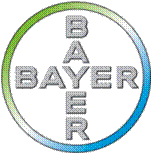General principles applicable to working of patented inventions – S. 83
•patents are granted to encourage inventions and
–to secure that the inventions are worked in India on a commercial scale and
–to the fullest extent that is reasonably practicable without undue delay
•that they are not granted merely
–to enable patentees to enjoy a monopoly for the importation of the patented article
•that the protection and enforcement of patent rights
–contribute to the promotion of technological innovation and
–to the transfer and dissemination of technology,
–to the mutual advantage of producers and users of technological knowledge and
–in a manner conducive to social and economic welfare, and
–to a balance of rights and obligations
•that patents granted do not impede protection of public health and nutrition and
–should act as instrument to promote public interest
–specially in sectors of vital importance for socio-economic and technological development of India
•that patents granted do not in any way prohibit Central Government
–in taking measures to protect public health
•that the patent right is not abused by the patentee and
–the patentee does not resort to practices
–which unreasonably restrain trade or
–adversely affect the international transfer of technology
•that patents are granted to make the benefit of the patented invention
–available at reasonably affordable prices to the public
Compulsory Licenses – S. 84
•Natco Pharma v. Bayer Corp.
–Granted to Natco Pharma for the production of generic version of Bayer Coporation’s ‘Nexavar’ - Sorafenib tosylate (March 9, 2012)
–Used to treat kidney and lever cancer
–Controller – Intellectual Property Appellate Board (IPAB) – Bom. High Court – SC (dismissed Special Leave Petition)
•Bayer launched the drug in 2006
–Patent granted in 2008
–Did not produce the drug in India
–Details of import
•2008 – no bottles
•2009 – approx. 200 bottles
•2010 – no bottles
–20,000 liver cancer patients and 9000 kidney cancer patients; so need for about 23,000 bottles per month to satisfy the demand
–Price per month – Rs. 2,80,248/-
•Price by Natco – Rs. 8,800/- per month
–Always in short supply even in metro cities; not available through out India
–This was significant as it is a “life saving drug” and not a “luxury item”
•Bayer argued
–“the cost of drugs supports the pipeline of future drug development ”
–its investment in new drug development amounted to 8 billion Euros from 2007 to date
–and that it takes more than 2 million Euros to bring a new drug to market
•Controller noted
–Bayer’s worldwide sales increased from $165M in 2006 to $934M in 2010
–"These figures clearly demonstrate the neglectful conduct of the Patentee as far as India is concerned“
–Common man (lowest - paid government worker) will have to pay his 3.5 years’ wages to afford one month’s supply of drug
–Nexavar extends life for kidney cancer patient by only 4-6 years and liver cancer patient by 6-8 months
–Bayer did not fulfill “reasonable requirements of the public”
–It had not "taken adequate steps to . . . make full use of the invention.“
–The price was not “reasonably affordable to the public”
–It did not “work the invention in the territory of India”
–Controller referred to Article 27(1) of TRIPS and Article 5(1)(A) of the Paris Convention
•the Controller established the terms of the compulsory license, wherein:
i. the right to make and sell sorafenib is limited to applicant (no sublicensing)
ii. the compulsorily licensed drug product can be sold only for treatment of liver and renal cancer;
iii. the royalty shall be paid at a rate of 6%
iv. the price is set at Rs.74/- per tablet, which equals Rs. 8,800/- per month;
v. the applicant commits to provide the drug for free to at least 600 "needy and deserving" patients per year
vi. the compulsory license is not assignable and non-exclusive, with no right to import the drug
vii. No right for the licensee to "represent publicly or privately" that its product is the same as Bayer's Nexavar®
viii. Bayer has no liability for Natco's drug product, which must be physically distinct from Bayer's dosage form
The license was granted on March 9, 2012.


No comments:
Post a Comment